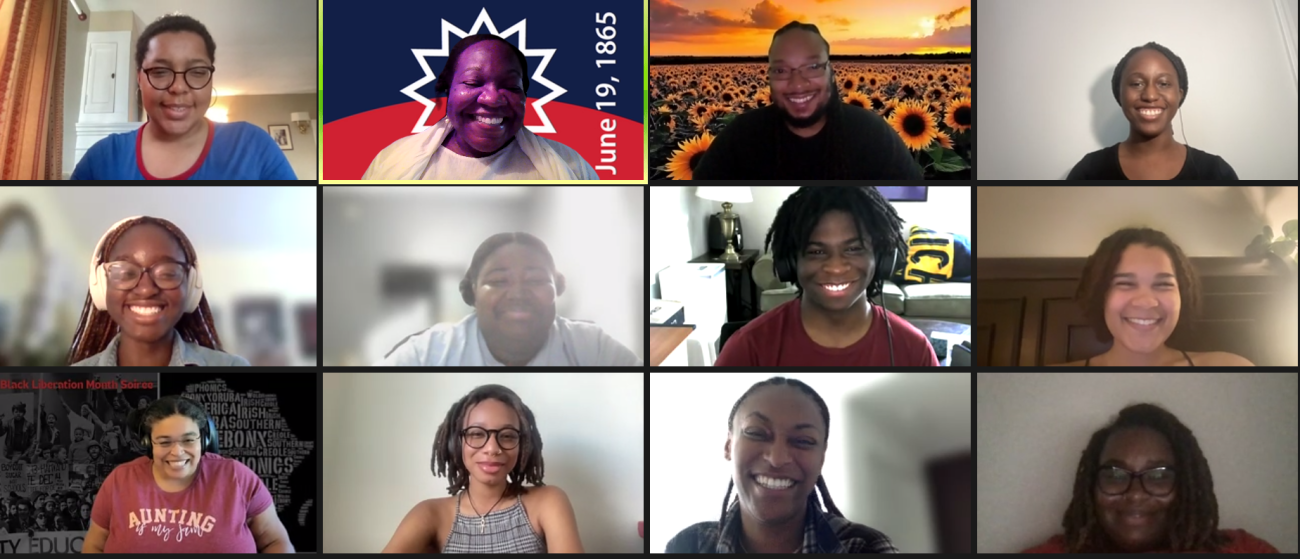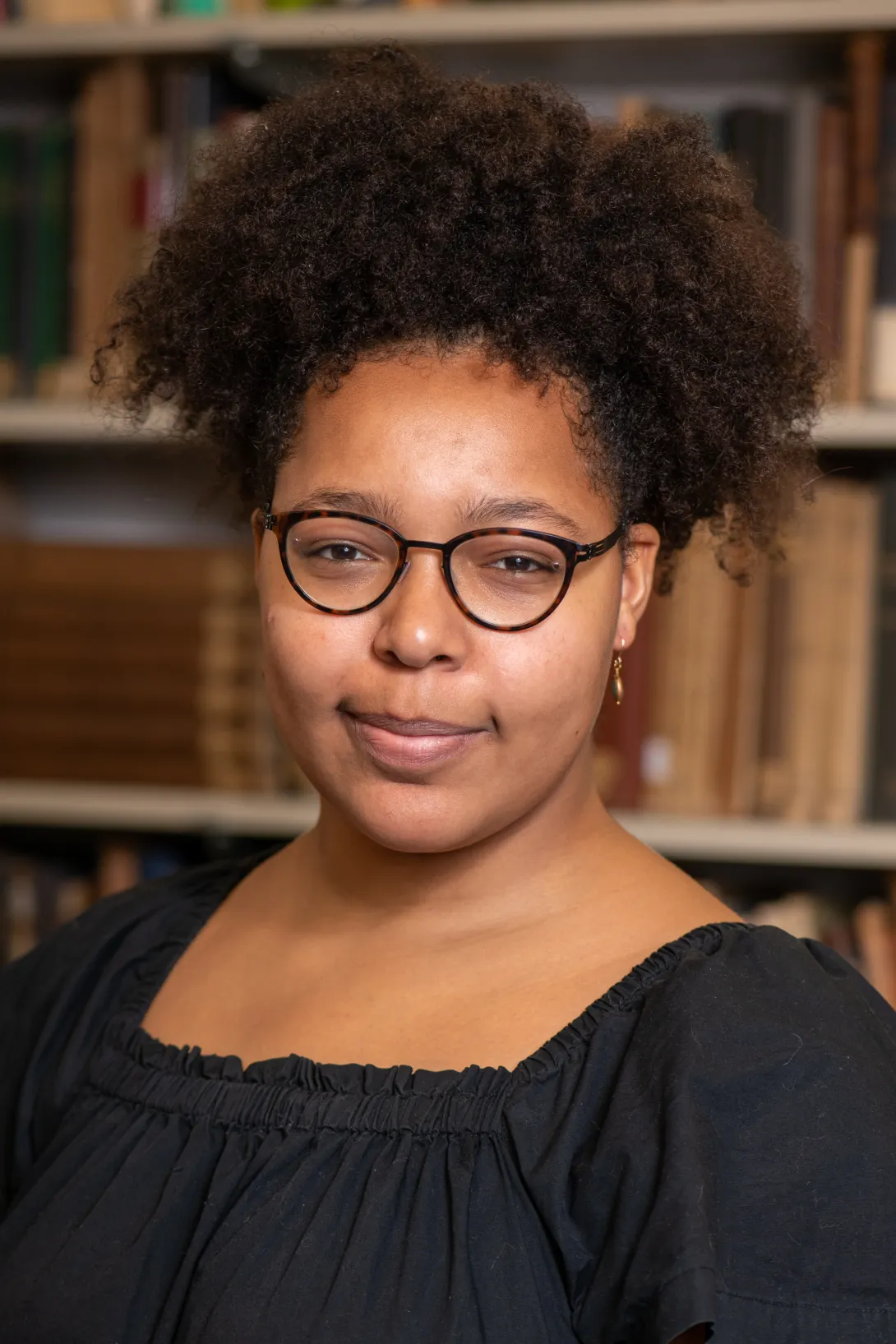
The ‘BAD Lab’ creates a community bound by research
When Tilly Brooks applied for an internship with the Black Academic Development (BAD) Lab at Stanford last summer, she was looking for a place where she didn’t have to choose between community and her research interests.
“I was coming from a linguistics program where I was the only Black undergraduate student, and there were no Black faculty,” said Brooks, who graduated from Yale in May. “At that point, I had never really encountered a Black woman in my field who was a senior scholar.”
Then she learned about the BAD Lab at Stanford Graduate School of Education (GSE), a collective of students and faculty whose research, teaching, and activism centers around the lives of Black educators. Led by Anne Charity Hudley, a professor and associate dean of educational affairs at the GSE, the BAD Lab runs a summer internship that pairs undergraduate students with doctoral scholars to pursue advanced research in linguistics and education.
Brooks was looking to gain more experience in sociolinguistics, and to work on her personal ethics and identity as a scholar. She said that she ended up getting more than she expected.
“It was a transformative experience that gave me a perspective of my field that I hadn’t really seen before,” said Brooks, who devoted her time during the internship to researching educational gag orders, to better understand the types of works that are commonly banned, the rationale behind the bans, and the enforcement and penalties imposed for violating them.
As a result of the internship, she decided to pursue a doctoral degree from Stanford’s department of linguistics while working on a law degree from Yale.
“I knew I was interested in doing both degrees, but believed I had to choose between the two until I had the chance to talk through the details of doing both with [GSE doctoral student] Kia Turner, a mentor in the program,” Brooks said. “She was kind enough to share her experiences with me and give me tailored advice about the process based on her knowledge of me as a student and researcher. It wasn't until I met Kia that my plans for the future began to take shape.”

Building collaborations and community
An eight-week program that runs from June 19 to Aug. 11, the BAD Lab summer internship provides a way for students to collaborate across universities to share research and build community within the realm of Black language and culture.
Charity Hudley started the program in 2018 when she was a professor at the University of California at Santa Barbara (UCSB), before bringing it to Stanford two years ago.
“A major highlight of the program for me is the opportunity to give our graduate and undergraduate students the experience of being collaborators in research,” Charity Hudley said. “It’s been amazing seeing students writing, researching, and working on projects together during the summer, and even after the internship is done.”
The 2023 cohort includes postdoctoral and graduate mentors from linguistics and education programs at Stanford, the University of Pennsylvania, and UCSB. The interns are undergraduate students from Howard University, the University of Florida, William and Mary College, California State University, Knox College in Illinois, the University of Michigan, Florida Agricultural and Mechanical University, and Tougaloo College in Mississippi.
To increase access and equity among participants throughout the country, the program will be entirely virtual this summer, according to Charity Hudley.
“It’s really important for me to help students see how they can build community in their field,” she said. “As a researcher, you need to learn how to work with scholars from a large range of experiences. Making it virtual opens it up to students who may not be able to spend a full summer at Stanford.”
A broader lens for Black language research
Funded in part by a National Science Foundation grant that aims to increase diversity in the linguistic sciences through undergraduate research, the program provides paid research opportunities to both interns and mentors. Participants go on to create Black language-based research projects, some of which are later published and presented at conferences.
“These students showed us in their applications that they have the training, interest, and desire to pursue research careers, and that they’re motivated to fully take advantage of the research opportunities that we provide,” said Kahdeidra Martin, a GSE postdoctoral scholar who runs the program with Charity Hudley.
Previous iterations of the Summer BAD Lab Internship Program have contributed to Talking College: Making Space for Black Language Practices in Higher Education, a book authored by Charity Hudley and professors from the University of Maryland at Baltimore County and UCSB.
“The purpose of the NSF grant is to support undergraduate research over the summer, so that’s a big part of our work,” Charity Hudley said. “With more diverse researchers, we get the nuance that comes from learning about language when you have the lived experience of being in that community.”
The mentorship piece
Program mentors — there are five this year — are active members of the BAD Lab who are selected based on a demonstrated commitment to train students in culture-related research. Mentors and interns are paired based on mutual interest, an intern’s needs, and academic goals.
In previous years, pairs have worked on project topics that ranged from linguistic racism and bias in grammar to the language behind educational gag orders.
For the duration of the internship participants attend two courses per week, engage in one-on-one meetings with mentors, conduct independent research, and complete homework and weekly reflections outside of class.
“It’s been so great to see the program’s sustainability through the work being done,” Charity Hudley said. “I see this not just as an individual program, but as a structural program where people are creating this amazing network of Black scholars, mentors, and academic leaders.”
For Brooks, the program’s mentorship piece is what brought her back for a second round, this time as a mentor.
“One of the most important experiences for me last summer was that I saw how effective strong mentorship can be,” Brooks said. “I really want to try and emulate the people I learned the most from through the program and pass it on.”
Faculty mentioned in this article: Anne Harper Charity Hudley



